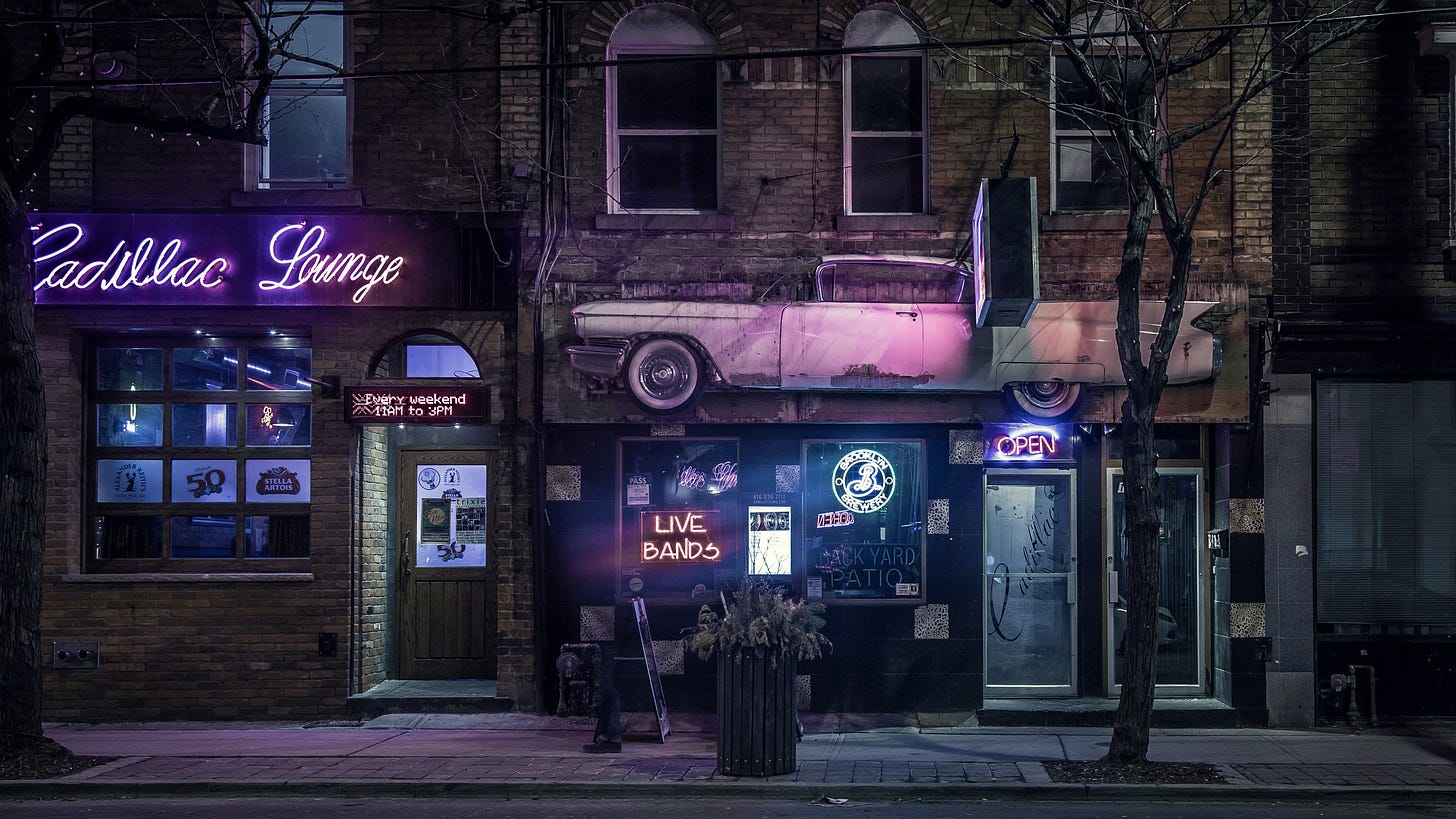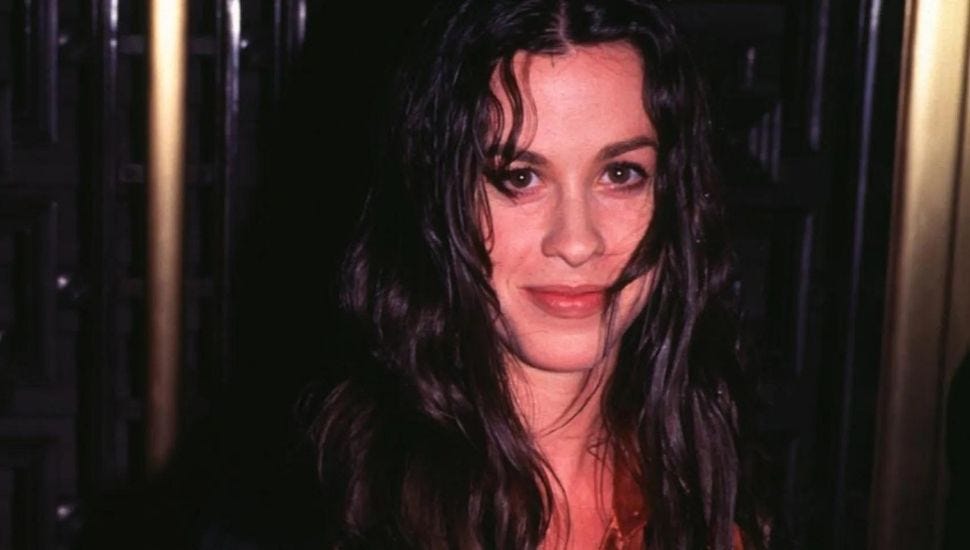Apple Music's DJ Mixes Could Affect ALL Music
Indie Venues Deserve Sponsorships Too, Alanis Morrisette Slams New Doc

Late last week, Apple Music announced that it would be expanding its DJ mix offerings thanks to audio fingerprinting technology provided by Shazam, which the company acquired in 2018. In the announcement, Apple championed Shazam’s ability to ID tracks, even in complicated mixes where altered tempos, edits, remixes, etc. have traditionally defied easy rights reporting and the royalty payments that occur downstream.
So Apple’s latest promise of payments, not just for the rights holders who make the music, but also for the DJs who create the mix and the curators (clubs, promoters, etc.) who provide the content to Apple, is largely being seen as a boon for the portion of the DJ industrial complex that includes already popular mix series like Defected and Tomorrowland. One could indeed speculate that this is the first step towards allowing anyone to upload mixes, even though user-generated content has never been at the forefront of Apple’s concerns.
We were also excited to see K7’s legendary DJ-Kicks series being vaunted in a press release by the world’s richest company, if for no other reason than the fact that Carl Craig’s 25-year-old out-of-print mix for the series really needs to be heard by the current generation of techno heads.
But the real question might be why any of this is news. DJ mixes have been online for almost as long as the World Wide Web itself. San Francisco’s Beta Lounge began webcasting live DJ sets in 1996 and was staffed by individuals whose day jobs in tech more or less invented the Internet as we know it today. In more recent times, platforms like Soundcloud and Mixcloud made it possible for any DJ to upload endless hours of DJ sets for on-demand streaming (the latter even getting a blanket UK radio license to pay for the privilege), while live-streaming hit critical mass during the pandemic, with DJs jumping between Instagram, Facebook, Twitch and YouTube in attempts to stay ahead of the copyright police whose algorithms would cut off DJs midstream or mute offending audio.
All of this is to say that Apple wading into the DJ waters with content ID technology is a good thing. The company first dipped its toe into the pool way back in 2016 when it partnered with Dubset to handle licensing on a handful of DJ mixes and remixes. Apple continued to refine the tech behind the scenes and last September partnered with live video series Boiler Room to host several hundred audio-only mixes from the archive on the platform.
So this new announcement is really just an expansion — the main difference being the addition of Shazam into the conversation. This tracks with other recent moves by Apple. In June, they released ShazamKit, an API that allows third-party apps to utilize Shazam’s audio ID technology in a variety of ways. At the time, it seemed uncharacteristic for Apple to allow a backdoor into its walled garden. But with the current news, a pattern begins to emerge that might indicate what the company really values. And it ain’t just a few more paying techno heads on its loss-leading music streaming platform.
Yesterday, the RIAA issued its 2021 mid-year report which confirmed what everyone has been cautiously hoping for. That the music industry has returned to double-digit growth after slowing during the pandemic. In addition to spectacular streaming numbers and astronomical vinyl sales, a large chunk of the growth is attributed to licensing deals with fitness apps like Peleton and social media platforms from TikTok to Facebook. And it’s only the beginning.
While the traditional DSPs like Spotify and Apple Music more or less solved the retail music piracy problem of a decade ago, the next frontier for capturing the value of recorded IP will require scooping up every last penny from additional music plays. These secondary performances occur everywhere from podcasts and Roblox to retail outlets and nightclubs. And some estimate the value of all this extra revenue to be in the ballpark of $6 billion over the next two years.
To get a truly universal tally of what’s getting played is going to require immense detection power, as well as comprehensive databases to match what gets played with who gets paid. All of which is coming, more likely than not on the blockchain. You don’t have to squint very hard to see a future where flat-rate music subscriptions services and blanket licensing deals are supplanted by a global network of instantaneous micropayments that make their way from the user’s crypto wallet to the end rights holder.
Apple’s investment in Shazam could be the start of a system of web crawlers that ID and index every piece of possible audio in the same way that Google does for web pages. And as Shazam has already proven, it will be able to detect audio in the real world as long as there is a microphone listening.
If that sounds conspiratorial, then you probably spend too much time on Twitter. But somewhere between the lawlessness still present in much of today’s online music and the dystopian state of tomorrow, there might exist a balance where creators get paid for their work. Wouldn’t that be nice?
Want to collaborate with The Cadence? Contact us.
TAKEAWAYS
Salient statements from this week’s music news.
1. Ad.Ventures Is Ready to Bring Big Branding Dollars to Venues
Forced to collaborate for their survival during the pandemic, indie venue collectives could have a bright future.
Takeaway: By pooling their inventory together, indie venues can offer potential advertisers a scalable advertising network of participating clubs.

2. Alanis Morissette Slams ‘Jagged’ Doc, Claims Filmmakers Had ‘Salacious Agenda’
In the age of artist authorized hagiographies, a little controversy could be a music doc’s best promotion.
Takeaway: Morissette said she would not be attending any events around the film both because of her issues with it — she compared it to other “‘stories’ and unauthorized biographies” that have been released over the years.
3. Live Nation to Acquire 51% of Ocesa, Mexico’s Largest Concert Promoter, for $444 Million
Could this be the start of the post-pandemic buying frenzy many have been expecting?
Takeaway: The acquisition was first announced back in 2019 for a reported $480 million but delayed due to the pandemic; changes in the exchange rate account for a large percentage of a current lower price.



